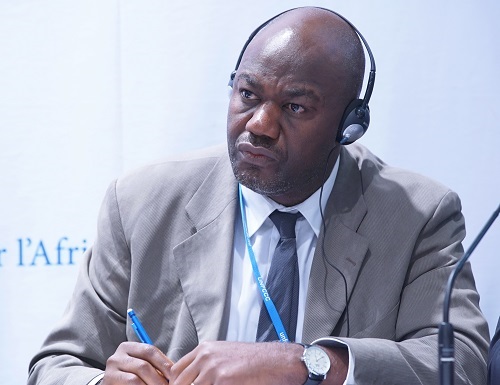The President, Society for Planet Prosperity (SPP) and the Director, Centre for Climate Change and Development (CCCD) at Alex Ekwueme Federal University, Ndufu Alike Ebonyi State, Prof. Chukwuemerije Okereke, has emphasised the importance of adequate finance in meeting the 2060 net zero aspiration and other climate change targets in Nigeria.

Prof. Okereke made this known while giving an opening speech at a webinar on “The Role of the Climate Change Act in Catalysing Climate Finance” recently organised by the SPP in partnership with GCA Capital partners.
He noted that, for the new National Climate Change Council to meet all the obligations as contained in the Climate Change Act, adequate financing is critical and germane. He advocated for alternative funding to ensure that the council fulfill its mandate as enshrined in the Climate Change Act.
Speaking on the topic “The Role of the Climate Change Act in Catalysing Climate Finance”, the keynote speaker and the CEO of GCA capital partners, Mr. Obi Ugochuku, submitted that the Climate Change Council should be a vehicle for finding alternative finance for climate change activities.
He explained that some of the public sources of funding that can be available to the council include Appropriation, Linkage with national and subnational plans, Carbon tax, administrative interventions, and Linkage with climate finance ambitions, while the private sources included corporate issuances, institutional investors, and catalysing private sector sources, and the multilateral and bilateral sources involve keying into global sources for support and leveraging global climate finance commitments.
Mr. Ugochuku concluded that while there are existing funding opportunities both at the national and international arena to meet the climate change targets in Nigeria, accessing the fund requires strong commitment to ensure that the funds are channeled to what they are meant for.
In his contribution during the webinar, Mr. Olugbolahan Mark-George, a Climate Finance Advisor to the Federal Government of Nigeria, enumerated different ways that the National Climate Change Council could swing into action on the financial aspect. He stated that the harmonisation of all the existing policy documents on climate finance, introducing functional structure to check all MDGs budget through climate filter, updating of data to guide decision-making, tracking of budgetary allocations on climate finance and leveraging on public finance to access private finance and global finance are crucial in ensuring the success of the National Climate Change Council.
While contributing as a discussant, Dr. Eugene Itua, the Coordinator of Nigeria’s Long-Term Low Emission Development Strategy (LTS) Development, maintained that finance is key in piloting the affairs of the Climate Change Council, stating the need for the council to accelerate action on nature-based solutions with a good return on investment and the development of an enabling environment for sustainable development and sustainable finance.
Dr. Itua pointed out that it was the function of the council to galvanise the whole system into action through collaboration with the private sector and other stakeholders to ensure that enough finance is mobilised to actualise the goals and objectives of the council.
In his remarks, Prof. Emmanuel Oladipo, who is of the University of Lagos, Akoka, stated that climate change should be seen as a part of development and Nigeria should not wait for external funding to fight climate change because it is affecting us directly. He noted that we must start with a small amount in terms of mobilising climate finance knowing fully well the economic situation of the country, while more funding would be attracted through good proposals.
Prof Oladipo stressed the importance of the Climate Change Council to engage, dialogue, and employ experts to help run the affairs of the council if the government wants to achieve optimum results in climate finance mobilisation.
The webinar had in attendance over 50 participants from different MDGs, CSOs and other stakeholders in the Nigerian environment sector.
On July 25, 2022, President Muhammadu Buhari approved the appointment of Dr. Salisu Mohammed Dahiru as pioneer Director General and Chief Executive Officer of the National Council on Climate Change. The Nigeria Climate Change Act has some key financial provisions which include financial mobilisation, the establishment of a Climate Change Council with a mandate to mobilise finance, and the establishment of a Climate Change Fund, which could be a repository for a plethora of climate-related instruments.
By Chinedu Nwasum
